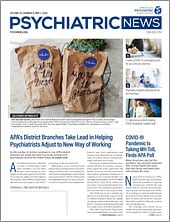In this global moment of anxiety about our health and welfare, contingency planning for you and your practice is required in case of sudden respiratory compromise. I propose three elements to a pandemic contingency plan: a personal health history, a document detailing how to contact patients and manage the practice, and a will.
The brief health history should contain only the essentials: medical history and diagnoses, medications and allergies, contact information for your primary care provider, and contact information for your closest family members. My health history fits on a single page so that harried doctors won’t have to wade through excessive details to find what’s truly important. Share this document with whoever is most likely to communicate with hospital personnel. Keep a printed copy somewhere convenient; if you must call 911, grab the health history and bring it with you.
Next, create a document with specific and concrete details about your office, whom to notify, to whom to delegate tasks, how to access patients’ contact information, and a sample letter to patients. Ask the colleague who usually covers for you when you’re on vacation (remember vacation?) and/or your peer supervisor for permission to include him or her in this process. Review his or her roles in your contingency plan. Under the current shelter-in-place order, my husband has access to my appointment calendar, patient charts, and patients’ contact information, but he could ask a designated colleague to call my patients. Hopefully, the calls would only be to postpone appointments and attend to immediate needs.
Create a sample letter to your patients in case your practice needs to be closed to ensure that they will be communicated in the manner you would want. My letter starts with “I regret to inform you” and describes the arrangements that have been made to facilitate my patients’ transition to a new psychiatrist: Who will provide interim refills, how to find a new psychiatrist, and how to obtain information from their chart. It closes by stating how much I valued working with each of them and how I would have wanted a more gradual transition. I hope that in these last two lines my patients will recognize my voice and feel comforted.
The plan I wrote is designed for a private practice; however, psychiatrists working for institutions, where support staff assist patients, may still want a contingency plan. Those of you who work in an academic setting may want to address such questions as who will take over your grant so your project can continue? and how are your grant reports and data accessed? In a community health center, although your patients will be reassigned, wouldn’t it be nice for them to receive a letter that includes your own words rather than an impersonal notice?
Even more important than our responsibility to our patients is that to our children. Especially if you have minor children, it is wise to designate who will take care of them in your absence, which may be different if the absence is temporary rather than permanent. If you don’t already have a will, write one now. If you do have one, review it to be sure it still reflects your final wishes.
As with all pandemic planning, we hope the precautions we take are excessive, not insufficient. Far better to have too many ventilators than too few. Far better to have wasted some time creating a contingency plan that isn’t used than to have none and need it. ■

